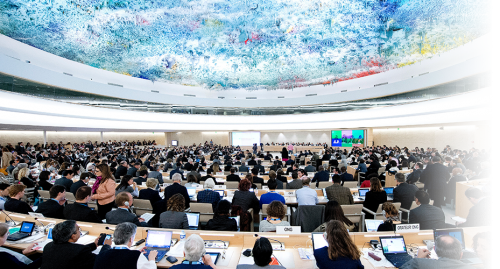In this newly released report, part of the Engaging Tech for Internet Freedom initiative, ARTICLE 19 focuses on tech companies and their corresponding human rights obligations in authoritarian states – in this issue, China, Myanmar, and Vietnam. Zooming in on freedom of expression and privacy, the report unpacks how tech companies have been responding to oppressive legal and political conditions. Case studies show that companies have often referred to domestic laws in explaining their collaboration with the authorities, thus allowing for censorship, propaganda, breach of data privacy, and surveillance. ARTICLE 19 calls on companies to employ a human-rights-centered approach in decision-making and comply with the UN Guiding Principles on Business and Human Rights. The report lists recommendations for the states in the region and tech companies operating within them. Find more relevant ARTICLE 19 publications on China, Myanmar, and Vietnam here.

